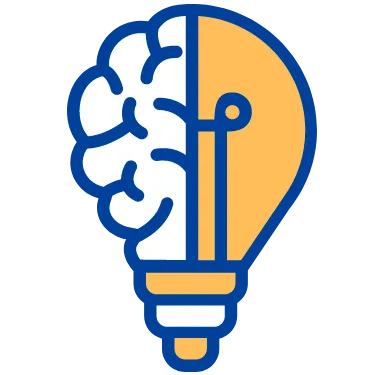
Is your child struggling to remember simple instructions, feeling tired and confused and forgetting things that they usually remember? They may be experiencing Brain Fog. What you may ask is Brain Fog and why has this term gained prominence recently?
Brain Fog is not strictly a medical term but is a combination of signs and symptoms that appear (maybe in the aftermath of an illness such as Covid) and then tend to stick around for days, weeks, or months. In addition to feeling tired and fatigued, not being able to concentrate children and young people may also think more slowly, feeling confused and be lost for words. Sometimes, they may even experience physical symptoms such as migraines or headaches.
So, is it just because of Covid? No, even though much attention has been paid to Brain Fog being a symptom of “long Covid”, this condition has been around for a while. Causes can be broadly divided into how other agents might affect our body and how our body interacts with the world around us.
1. Stress and Anxiety-This is often the most common cause of Brain Fog. When we are stressed due to any reason, our “fight or flight” response kicks in. A small amount of stress on our system may make some people function better (improved performance and focus), prolonged high levels of stress have exactly the opposite response. We find that we struggle to concentrate and feel unclear or muddled in our heads. Remember the feeling the night before a big assignment or an exam? Prolonged stress such as that our children may be faced with in highly stressful school and competitive environments can have more significant and negative impacts on our body including our concentration, energy levels, and immunity. Prolonged stress can be particularly harmful as it builds up slowly and we often don’t realize that it’s there. It can feel like running faster and faster on a hamster wheel when we don’t recognize that we are tired until we fall over.
2. Exposure to excessive screen time-it can feel like (with some justification) that our children and teenagers live their lives on a screen. The number of young people that we see moving around with their phones in their hands and endlessly scrolling is massive. Have you noticed, the content on our phones is getting shorter and shorter? We started off with long films and the current favoured format is a 30-second Instagram reel or a YouTube short. There is increasing evidence the endless small dopamine “hits” to our Brain along with increasing hours spent on screens is impacting both our concentration span and energy levels. Notice how we feel exhausted after spending time scrolling on Instagram! Now take that one step further and recognise that our children and teenagers spent hours glued to their phones and the results are not hard to imagine.
3. Infections – COVID and its aftermath have opened up a lot of research on the effects of long Covid. Researchers have found that 1 of the most common symptoms is Brain Fog which can persist for weeks or even months. There will usually be a history of a viral infection (not necessarily diagnosed Covid) in the weeks before symptoms appear.
4. As part of another illness – Brain Fog can be quite common in people with ADHD, chronic fatigue syndrome, depression, and anxiety. Some of these disorders strain our cognitive faculties. There will usually be other symptoms of the disorder in case of depression, mood symptoms, anxiety or other physical exhaustion symptoms. These disorders are particularly important to identify as they can impact almost all aspects of your child’s life.
Now that we have learned about the causes of Brain Fog, what can we do to lessen its effects? “Clearing the fog” need not be complicated or involve lots of testing all medicines. There are things that we can all do to help reduce the effects of Brain Fog.
Tips on how to manage Brain Fog – the DESIST Strategy
A simple acronym can help us remember what we can do. We tell the brain Fog to DESIST
● Diet – A balanced diet including a good mix of protein, fruits and vegetables can improve immunity and support healthy brain function. After all, a starved brain doesn’t make healthy choices.
● Exercise (or even active movement) – Exercise improves not only cardiovascular health but also releases endorphins which help with our overall well-being and with concentration. Additionally, getting out in the sunshine gives a small vitamin D. 30 minutes or more of moderate exercise 5 or more times a week is recommended by experts.
● Screen time- Studies have shown that more than 3 hours a day of screen time has negative effects on our mental health and well-being. Even if it is not possible to reduce screen time substantially, making sure we get lots of exercise and move away from the computer or phone when taking a break can help. Also, try and reduce your own screen time so you can model this behaviour for the children and try not to take your phone everywhere with you.
● Improve Sleep – a well-rested mind is a healthy mind. Make sure that your child gets at least 8 to 9 hours of sleep a night. Reducing screen time at night and other sleep hygiene tips can help.
● Treat illness – though psychological and physical illnesses that we talked about earlier, if treated early can make a massive impact on reducing brain Fog. Getting the right diagnosis and ongoing help for psychological conditions can be a good and effective step.
An expert psychologist can use therapeutic techniques to improve mood, anxiety and therefore lift brain Fog.
By implementing these lifestyle modifications and seeking professional assistance when needed, parents can support their children in overcoming brain fog and reaching their true potential. Childrenplus offers a collaborative and empathetic approach, ensuring children and young people receive the necessary support to thrive in their cognitive and emotional well-being.
Childrenplus, with its team of dedicated psychologists and counsellors, specializes in providing comprehensive psychological health services for children and young people. Contact us to know more.
This blog is entirely written by a human (Dr. Amritash Rai), no AI was used in its generation :-). If you enjoyed reading it, please share and tell your friends.


Very enlightening. I have a 20 year old who has been consistently succeeding but has failed 11plus and poor marks in says.
I have my 11 year old son he is very active in terms of physical work but very dull at learning & remembering and even focusing on one thing
Is it a brain fog??
When he was 5 or 6 Year Old He Used To Spend A Lot Of Time In Front Of TV Almost For One Year
If any suggestions you can provide